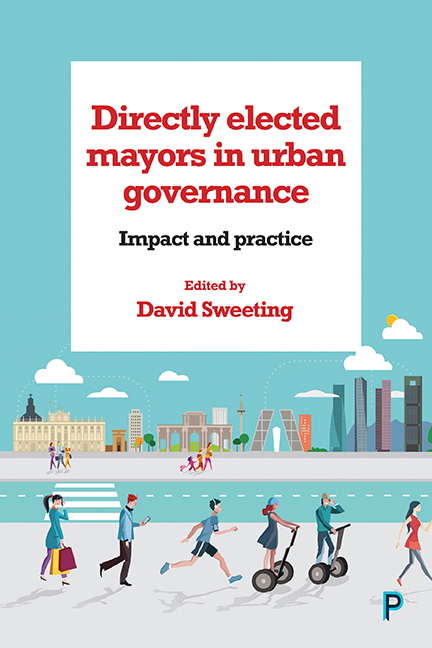three - Can the directly elected mayor model deliver? Innovation, limitation and adaptation: lessons from the City of Bristol
Published online by Cambridge University Press: 05 April 2022
Summary
Introduction
When Bristol's first directly elected mayor independent George Ferguson was elected early on the morning of 16 November 2012 he asserted “I believe today we have voted for a new way of doing things” (Ferguson, 2012). This chapter seeks to explore the capacity of the role to enable things to be done differently.
Beyond legalistic conceptions, the role of directly elected mayors is itself contested. The constitutional vagueness of the role, coupled with the variable geometry of City Deals negotiated before and after the mayoral election, posed challenges as well as opportunities for the incumbent mayor. There were significant opportunities for innovation available to the mayor following a City Deal that gave scope to leverage growth in business rates, exert greater control over a wide property portfolio of over £1 billion worth of assets and utilise a new growth hub at the Temple Quarter Enterprise Zone to draw in investment and incubate growth (Cabinet Office, 2011). The position of elected mayor also enabled the incumbent to deliver change on the basis of an electoral proposition from a direct mandate from the citizens of Bristol. As such, the mayoral model also conferred a different type of legitimacy. Conversely the capacity to do things differently is naturally bound by a pre-existing institutional system where the roles, functions and procedures are historically informed and institutionally engrained and often slow to adapt to change. The chapter explores a series of individual challenges met by the first directly elected mayor of Bristol during his first term of office and the challenges faced by his successor Marvin Rees. By addressing them in turn it assesses the capacity of the role and direct mandate of an elected mayor to innovate, adapt and overcome the temporal, structural and institutional barriers to achieve change. The data for this chapter comes from a series of interviews across three years with councillors including former council leaders and cabinet members and council officers from a larger project contrasting councillor perceptions of leadership roles in local government. The project was funded by a Central Research Grant from Oxford Brookes University. Assessment also derives from a situated appraisal by the author as an academic, community activist and resident of the City of Bristol.
- Type
- Chapter
- Information
- Directly Elected Mayors in Urban GovernanceImpact and Practice, pp. 35 - 52Publisher: Bristol University PressPrint publication year: 2017



